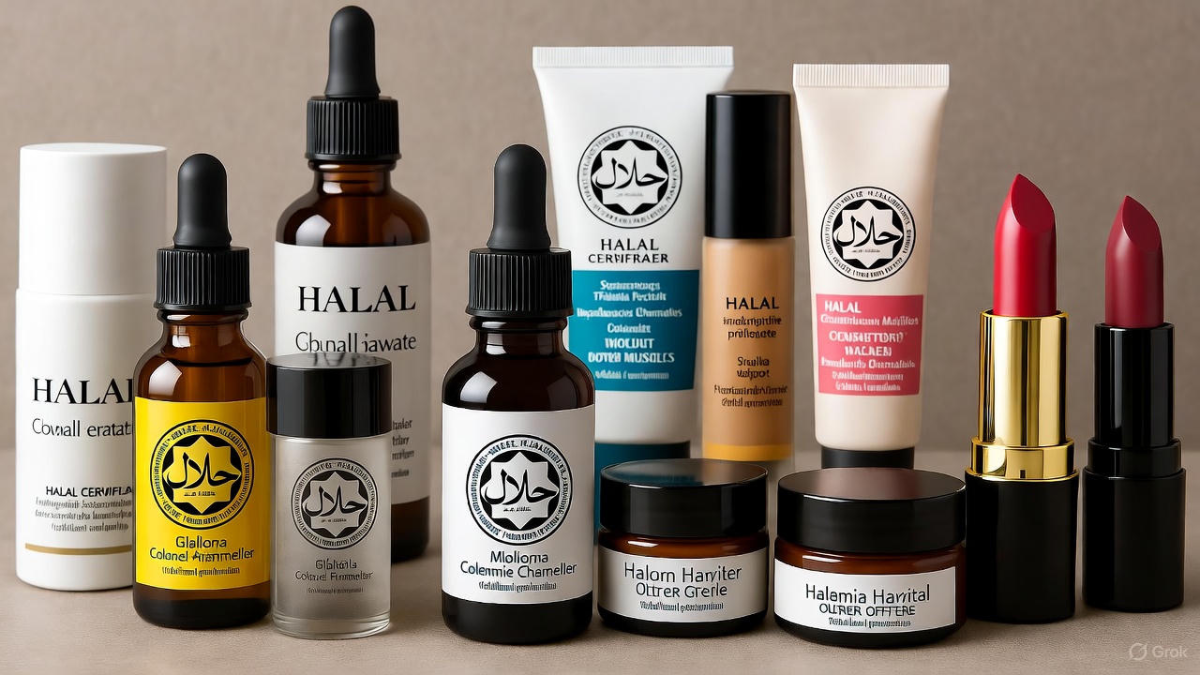The global beauty industry is undergoing a significant transformation, driven by consumers who demand greater transparency, ethical sourcing, and religious compliance from the products they use. Among the fastest-growing segments catering to this demand is the Halal cosmetics market. For manufacturers looking to serve the world’s 1.8 billion Muslims and the growing number of non-Muslim consumers seeking ethical, clean beauty options, obtaining halal cosmetics certification is an essential step. It is more than just a religious seal; it is a mark of quality assurance and commitment to purity.
What Defines Halal Cosmetics?
The Arabic word “Halal” means “permissible” or “lawful” according to Islamic law. When applied to cosmetics, it signifies that a product adheres to stringent standards throughout its entire lifecycle—from the raw materials used to the manufacturing processes and final packaging. Products that are forbidden, or Haram, include those containing ingredients derived from pigs, non-Halal-slaughtered animals, human body parts, blood, or intoxicating alcohol (khamr).
Halal cosmetics are therefore free from these forbidden substances, emphasizing cleanliness, purity, and traceability. This focus on ethical sourcing and high-quality production resonates not only with Muslim consumers but also with vegan, vegetarian, and general ethical consumers globally.
The Importance of Halal Certification in Cosmetics
For a business, acquiring halal certification for cosmetics is a strategic move that provides a strong competitive advantage and access to a massive, rapidly expanding consumer base.
Building Consumer Trust and Loyalty
The Halal logo acts as a powerful sign of trust. It assures Muslim consumers that the product is permissible for their use, removing any doubt about the ingredients or manufacturing process. This assurance is critical in a market often characterized by complex chemical ingredients and opaque supply chains. The rigorous audit process inherent in this certification also appeals to non-Muslim ethical consumers who prioritize clean-label and responsibly sourced products.
Market Expansion and Export Opportunity
Many countries with large Muslim populations, particularly in Southeast Asia and the Middle East, have regulatory requirements that mandate or strongly favor Halal certification for imported cosmetic products. Possessing a valid cosmetics halal certification from a recognized international body is often a non-negotiable requirement for entering these lucrative export markets, thus fueling global business growth.
Enhancing Quality and Supply Chain Control
The certification process demands a meticulous review of the entire supply chain and production facility. This focus on traceability for all raw materials, proper cleaning protocols, and segregation of production lines inevitably leads to enhanced quality control and better-documented manufacturing practices. The entire production chain, from sourcing raw materials to final packaging, must be free from contamination, requiring rigorous adherence to Good Manufacturing Practices (GMP).
The Path to Halal Certification for Cosmetics
Achieving halal certification for cosmetics involves a systematic, multi-step process designed to verify compliance with Islamic standards at every point of production.
Step 1: Ingredient Review and Sourcing Compliance
The initial and most critical step is a thorough examination of the product formulation. Every single raw material must be documented, and its source verified to ensure it’s not Haram. This includes checking the origins of animal-derived ingredients like gelatin, collagen, and glycerin, which must come from Halal-slaughtered sources or be plant/synthetic-based.
Manufacturers must also confirm that all halal certified cosmetic ingredients are sourced from compliant suppliers who can provide their own Halal certificates or declarations. This rigorous verification extends to processing aids and solvents.
Step 2: Application and Documentation Submission
The company must apply to an accredited Halal Certification Body (HCB) and provide a comprehensive file of documents. This submission typically includes:
- A complete list of products and ingredients.
- Flow charts detailing the manufacturing process.
- Cleaning and sanitation Standard Operating Procedures (SOPs).
- Supplier Halal Certificates for all raw materials.
- Facility layout diagrams showing segregation plans.
Step 3: Facility Audit and Inspection
A qualified Halal auditor will conduct an on-site inspection of the manufacturing facility. The audit’s purpose is to verify that the documentation matches the actual practices and to ensure strict adherence to cross-contamination prevention. The auditor will examine storage areas, production equipment, and cleaning procedures. For shared equipment, a specific ritual cleansing (Sertu) procedure may be required before Halal production begins.
Step 4: Committee Review and Certification Issuance
The audit findings and documentation are reviewed by the HCB’s decision committee or religious panel. Once compliance is confirmed, the official Halal Certificate is issued. This certificate grants the brand the right to use the Halal logo on their certified products.
Maintaining Compliance and Renewal
Halal certification in cosmetics is not a one-time achievement; it’s an ongoing commitment. Certified companies must implement a Halal Assurance System (HAS)—an internal control mechanism to maintain continuous compliance. This includes training staff on Halal procedures, reporting any changes in ingredients or suppliers, and undergoing regular surveillance audits to ensure standards are consistently met.
For those navigating this complex process, resources like Halal Watch World are indispensable. They provide crucial information and expertise on halal cosmetics certifications, helping manufacturers worldwide streamline their compliance efforts and successfully enter the ethical beauty market.
By securing official cosmetics and personal care certification, businesses do more than just fulfill a religious requirement; they cement their brand’s reputation for ethical practice, purity, and global quality, securing a vital position in the future of the beauty industry.
Read more exciting blogs on typenox.online


